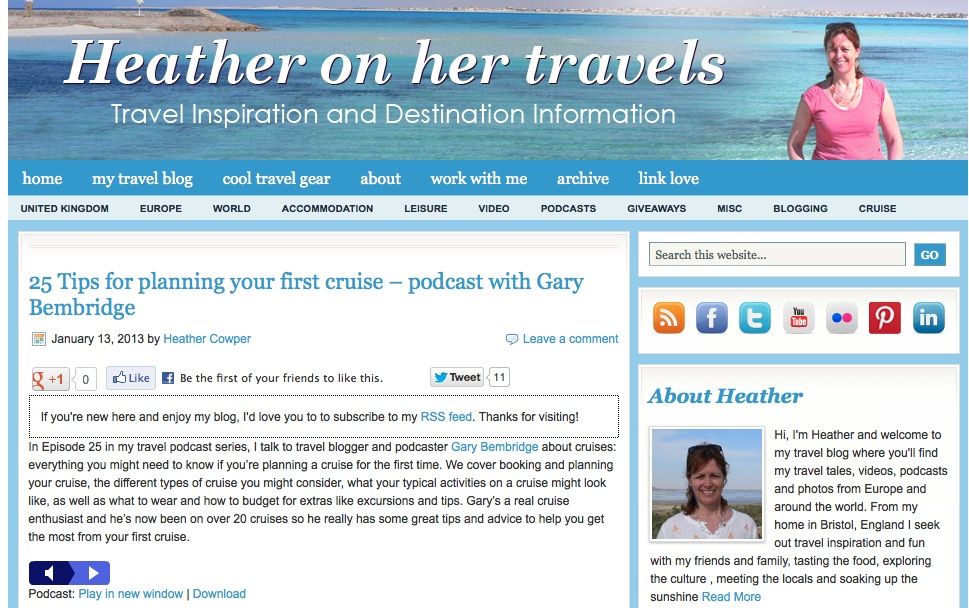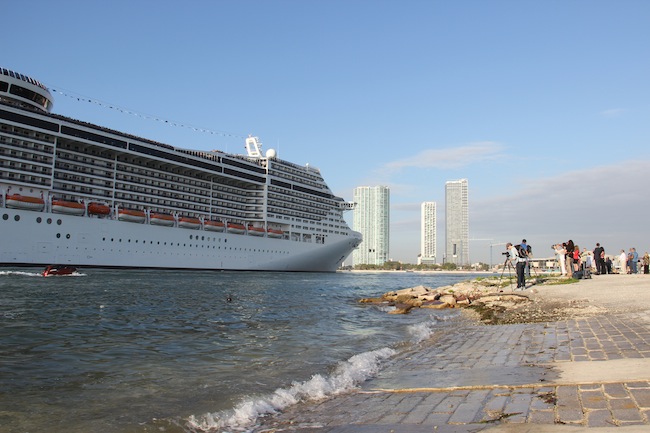Do Low Crew Wages For Cruise Ship Jobs Fund Luxury Cruise Fares?
 |
Luxury travel comes at a cost. Not just to the traveler, but also to the people providing their luxurious travel experience. This was the theme of the UK Channel 4 TV documentary “Cruises Undercover: The Truth Below Deck”, which was based on two undercover reporters investigation into the Royal Caribbean owned Celebrity Eclipse luxury cruise ship. It asked: Do Low Crew Wages For Cruise Ship Jobs Fund Luxury Cruise Fares?
Low cruise ship crew wages fund affordable luxury cruise fares?
The show argued that while cruise passengers were enjoying 5 star hotel luxury and service, the crew serving them were having to work for extremely low wages with unreasonably long hours. The crew were effectively helping to fund affordable luxury cruise travel.
Many cruise passengers, travel writers and bloggers took to cruise message boards and blogs to argue that there was nothing new in the the show. They argued that all cruise passengers knew that most crew are from emerging markets where the wages were more acceptable, and possibly even unattainable in their home markets. They argued that as retention rates of crew are very high (close to 90%) this proved that it was not really an issue. Something the Cruise and Passenger Bodies also argued in response.
I think there is a bigger point that every traveler and cruise passenger needs to be aware of, and think about. It is not just related to the crew on passenger ships. But also to the destinations and ports of call too.
Getting more of your fare into the hands of local enterprise not the cruise company.
Many of the most luxurious and premium travel destinations in the world are surrounded by poverty and poor conditions among the local population. Luxury cruise ships call at many of these places. In my view, travelers should be more aware, sensitive and ensure that their actions before, during and after their cruise and visit is helping to get as much of their fare into the hands of the local population and economy. Not just into the hands of the big corporations that funnel it back into the pockets of their shareholders in the relatively richer countries like USA or the UK.
The “Cruises Undercover: The Truth Below Deck” TV show had Ross A Klein, who wrote “Cruise Ship Blues: The Underside of the Cruise Ship”, commenting on their findings. He has written about how cruise lines pay low wages to their crew and also about how they control the excursions in ports to ensure that they retain the vast bulk of the revenue. So little filters through to the local population and enterprises.
Flags of Convenience allow avoiding home country labour regulations.
One of the ways that cruise ships keep cruise fares down is by not registering the ships where they are based and so avoiding labour laws on things like minimum wages or working hours that apply in their home market. Cruise ships ships usually fly what is known as “Flags of Convenience”. This means that they are registered in countries like Liberia and the Bahamas. At the end of 2011, for example, Cunard registered all their ships in the Bahamas instead of Southampton UK. They therefore are bound by those laws, which are less onerous.
Everyone that travels on a cruise, and talks to crew, knows that they work on contracts of anything from 3 to 9 months at a time. They work 7 days a week for that whole period with long hours each day. It is very demanding and tough, even more so as they have to be friendly, cheerful and helpful. They are the face and interface of the cruise for passengers and will make the cruise experience.
Despite this, the retention levels are high with repeat contracts being as high as 90%. The fact is, though, that most crew have to be recruited from emerging markets as the take home wages (even after taking account of the free board and food) are below the minimum wages or what would be seen as acceptable for the work in the more affluent western countries that the passengers come from. These wages are more acceptable and seen as viable for many. This does not necessarily make it right.
4 small actions every cruise passenger can take that combined would make a big difference.
I think that cruise passengers should be thinking about at least 4 things that they can do to make things more equitable and better:
- Stop complaining about having auto-gratuities added to your bill. Many cruise lines have set levels and add them onto your bill. This is something that Cunard for example do. This ensures that everyone is paying into the pot. It means that people do not do things like skip the last night dinner to avoid giving an envelope with tips to the waiting staff. Something I have seen happen more than I had hoped it would.
- Tip great service even if the cruise line is adding gratuities. Auto adding tips is a way of cruise lines helping to have a lower headline cruise price, in my view. They guarantee a minimum wage to crew and if tips do not get to a level they ensure that base is paid (according to the documentary). So also tip people that are giving great service directly. Remember these people are working crazy hours and days to make your life a luxury. A few extra dollars you will never miss, but will add up for the crew.
- Challenge your obsession with low cruise prices. Not sure how much we can do individually, but people today are so obsessed with lower and lower prices for cruises, clothes, food and just about everything. It leads to bad practices and consequences. Paying £5 for jeans leads to child labour and unsafe working conditions of workers. Cheap chicken leads to cruel battery farms and animal welfare. Cheap toys led to inexpensive and dangerous paint on toys that could have poisoned babies. Cheap cruises leads to cost cutting and more pressure on the wage and conditions. As a society we pay with consequences.
- Try and support local enterprise at every port of call. Instead of always booking cruise line cruises, try and do more self tours where you hire local taxi drivers, tour guides and go to local shops, stalls and vendors. Sites like shoretrips.com try and connect cruise passengers with locally owned companies and suppliers so all revenue stays in the community
The price we pay for luxury travel is not just the fares we pay. It is not just the money travelers pay out to jet off in first class flights to luxury vacation destinations. It is not just the cost of plush rooms for a 5 star hotel or cruise experience. There is also a cost that the local population or those providing the luxury service may be paying . Ask what you can do to make sure that the crew, the staff and the communities are benefiting too.
Background: Channel 4 described the “Cruises Undercover: The Truth Below Deck” as follows: “Glossy marketing films and brochures depict a cheerful workforce dedicated to making a cruise a five star experience. Channel 4 Dispatches goes undercover to investigate the reality of life below deck for the multi-national workforce who toil behind the scenes of glamorous ocean going holidays. The cruise industry generates billions of pounds in revenue each year and working on a ship provides many people from around the world a much needed source of income. However Dispatches reporter Tazeen Ahmad – travelling as a passenger on a European cruise – and an undercover reporter working as an assistant waiter discover working conditions below the legal minimum in the UK”.
Click on the links now to:
Sign up for my newsletters. You will not receive any spam!
Like the Tips for Travellers Facebook Page
Follow @garybembridge on Twitter



